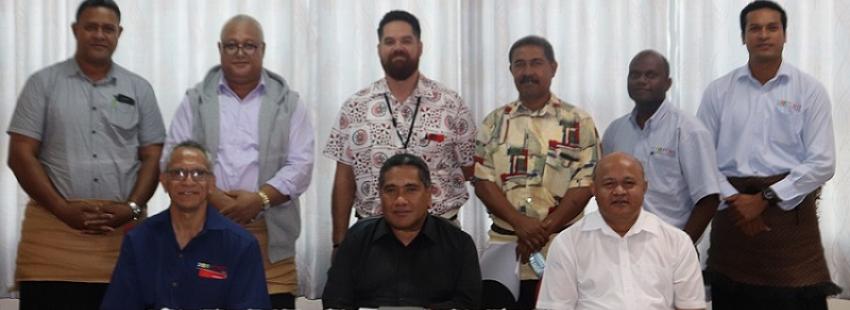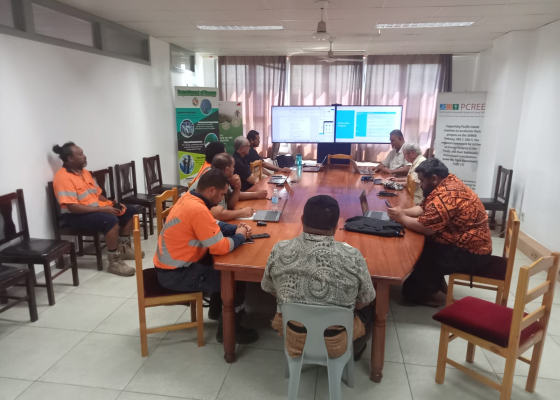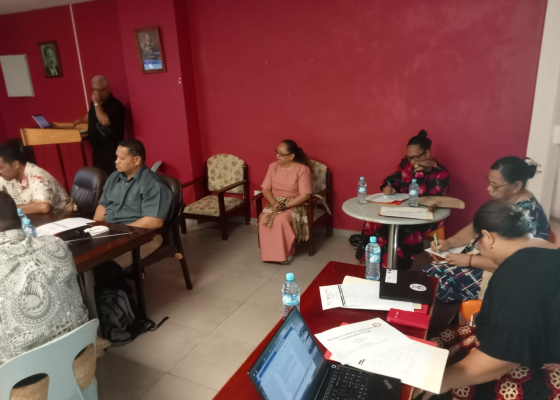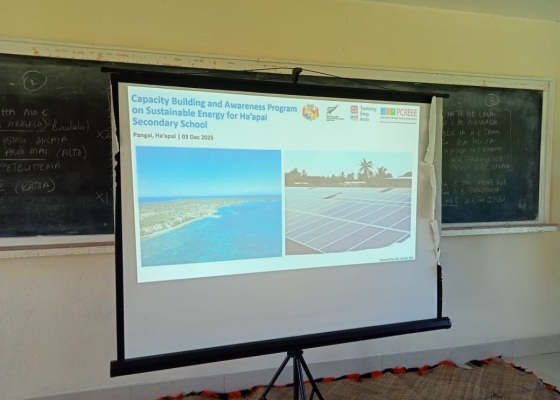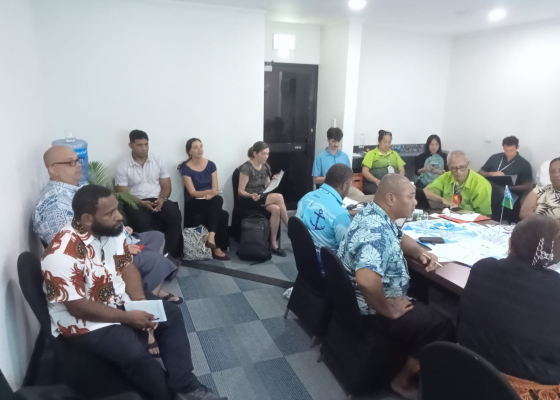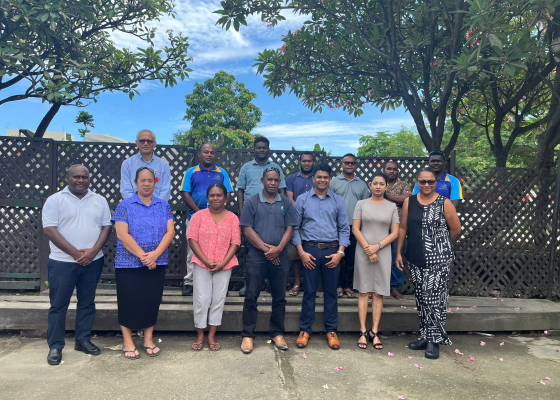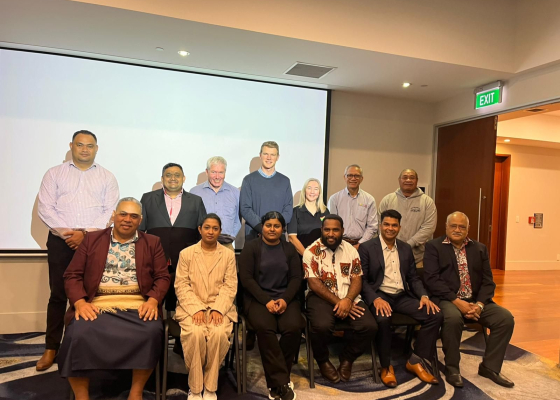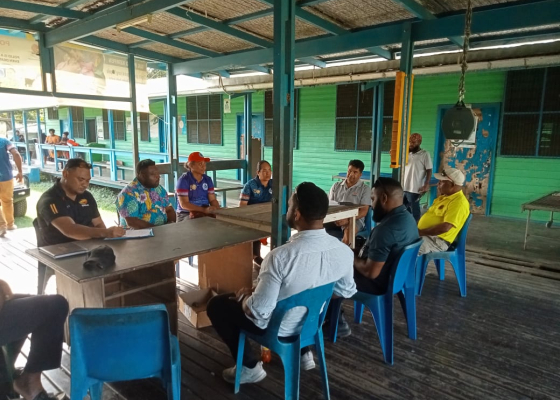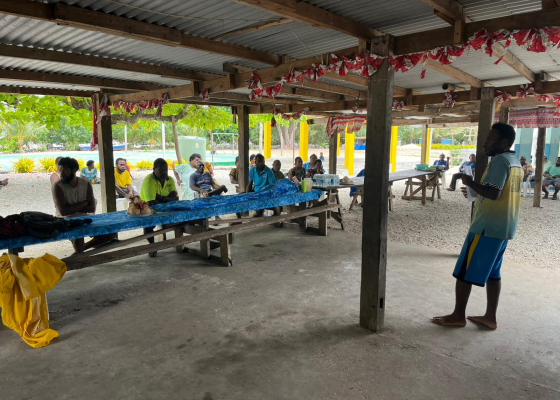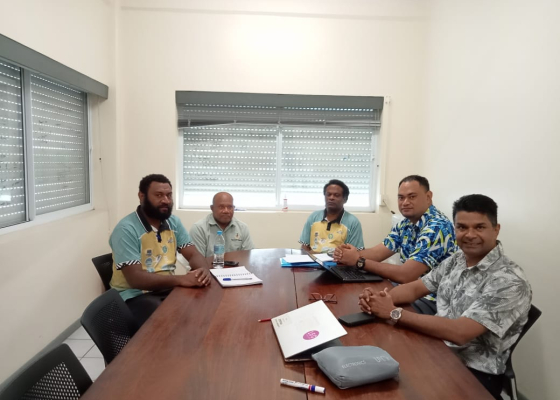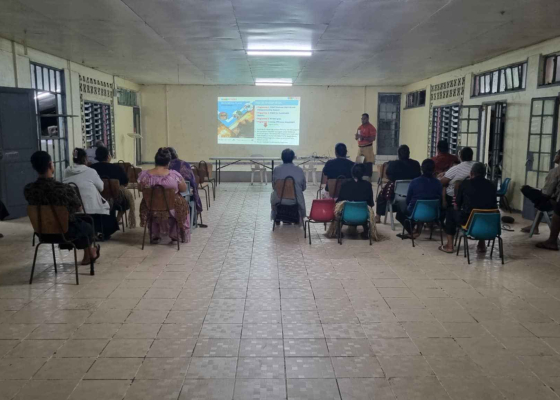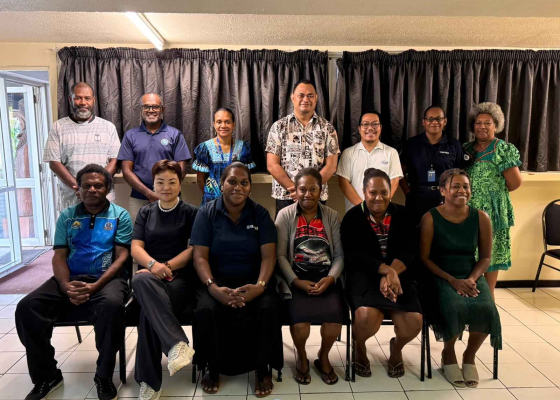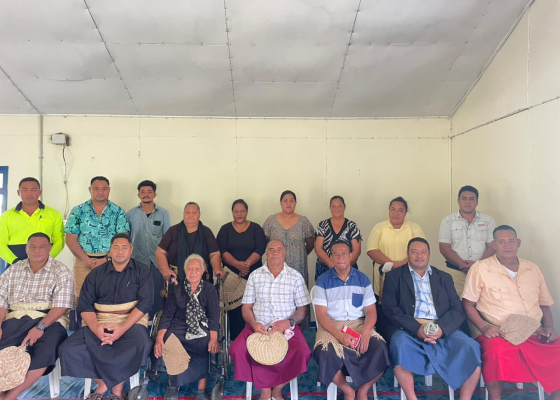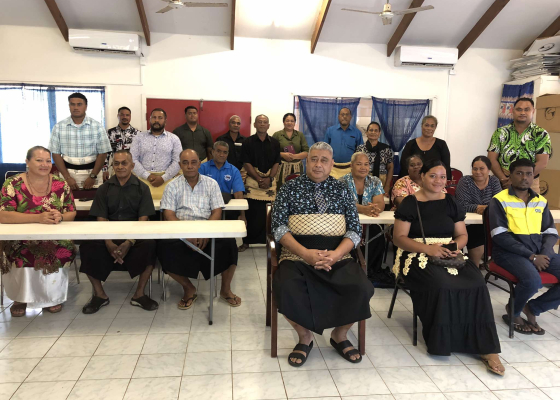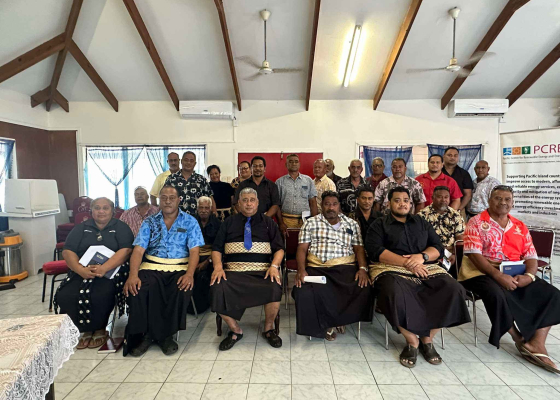First EU-PacTVET Project Technical Task Force Meeting
12th September, 2019 The members of the European Union Pacific Technical and Vocational Education and Training on Sustainable Energy and Climate Change Adaptation (EU-PacTVET) Project – Technical Task Force in Tonga held their first meeting yesterday afternoon, at MEIDECC’s conference room.
Led by the Pacific Centre for Renewable Energy and Energy Efficiency (PCREEE) and chaired by the Chief Executive Officer for MEIDECC, Mr. Paula Pouvalu Ma’u, the meeting is an opportunity for the Technical Taskforce Committee to provide an oversight of the PacTVET implementation programme in Tonga and to ensure the objectives of the project and its results are achieved.
Mr. Ma’u said, the implementation of this project will contribute to the training of the energy’s experts in Climate Change Adaptation (CCA) and Sustainable Energy (SE) here in Tonga and the Pacific.
The EU-PacTVET project is implemented by the Pacific Community (SPC) in partnership with The University of South Pacific (USP) over a period of 53 months, which had commenced in July 2014.
EU-PacTVET project is funded by the European Union with the objective to enhance sustainable livelihoods in the Pacific-African Caribbean and Pacific countries (P-ACPs). The sustainable livelihoods are the high priority for the P-ACP communities and governments alike. The progress of this project is to create P-ACP’s regional and national capacity and technical expertise to respond to Climate Change Adaptation (CCA) and Sustainable Energy (SE) challenges.
This development will demonstrate that energy security and climate change are the major issues that are currently hindering the social, environmental and economic development of the Pacific-African Caribbean Pacific countries. The project complements the broader Adapting to Climate Change and Sustainable Energy (ACSE) programme by reinforcing the potential for green-growth, including the introduction of systematic, regular and standardised training at technical institutes and colleges throughout the Pacific, where the next generation of tradeswomen and men can learn about climate change adaptation techniques, sustainable energy technologies and their applications.
The outcomes of the project are as follows;
- Provide flexible and multiple pathways for acquiring education.
- Meet the industry need with alignment of the training institution.
- Ensure recognition of SE and CCA’s local qualification by overseas institutions.
- Allow the award of National Certificates set against National Standards.
The results from the project will continue to be disseminated within and beyond the project countries through existing information sharing networks, formal training on Climate Change Adaptation (CCA) and Sustainable Energy (SE) mitigation, and forums at national, regional and global level.
Mr. Ma’u told the gatherings, these trainings will strengthen the capacity of both private sectors and Non-Government Organizations (NGOs) when supporting the public sectors in promoting and upholding the usage of SE technology and CCA.
“This development will provide beneficiaries to the nation in increasing access to business investment on SE and CCA, more job opportunities available for the youth and the communities as well as improving of the socio-economic developments in the community.”
The Technical Task Force Committee are made up of members from line ministries and relevant stakeholders.
Issued by the: Ministry of Meteorology, Energy, Information, Disaster Management, Environment, Climate Change and Communications.
For more information please click here.
Source: Government of the Kingdom of Tonga
Upcoming Events
-
03/25/2026 to 03/26/2026
-
03/26/2026 to 03/27/2026
-
04/09/2026 to 04/10/2026
-
04/20/2026 to 04/24/2026
-
04/27/2026

